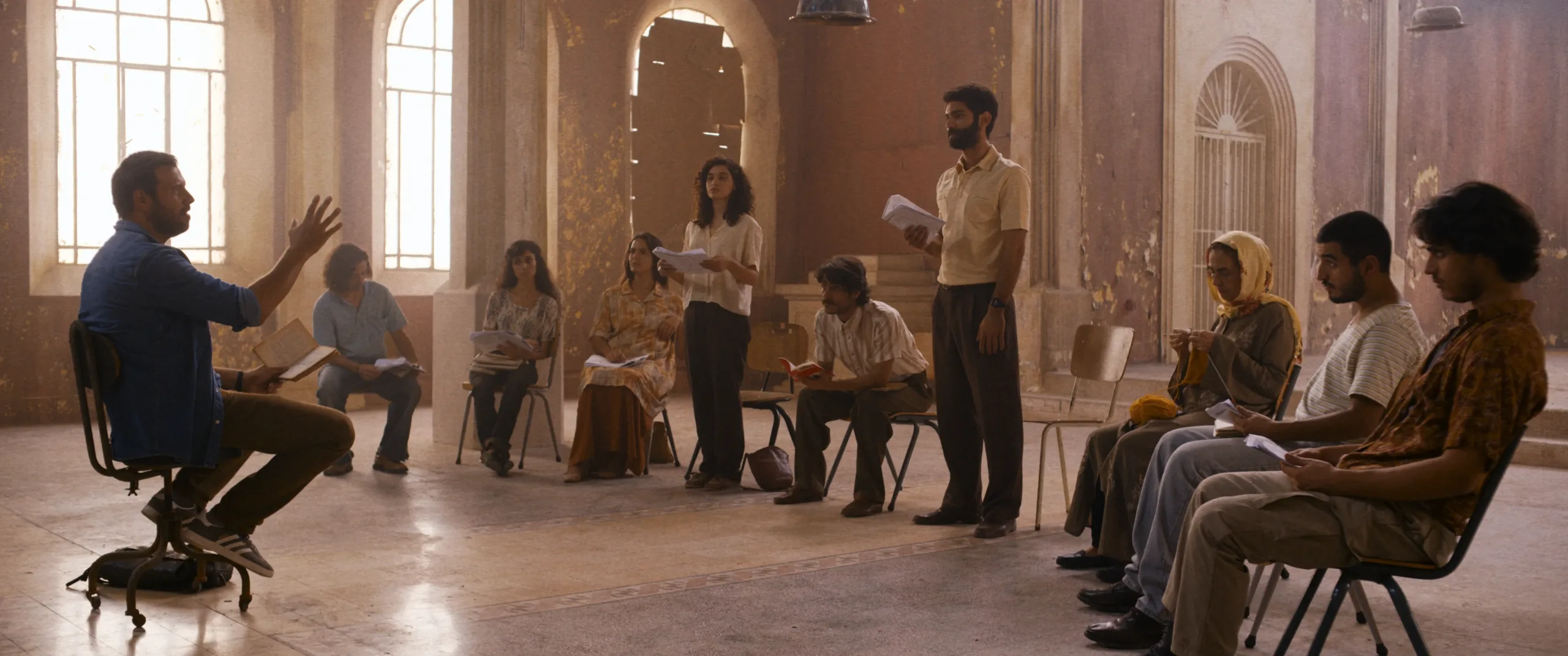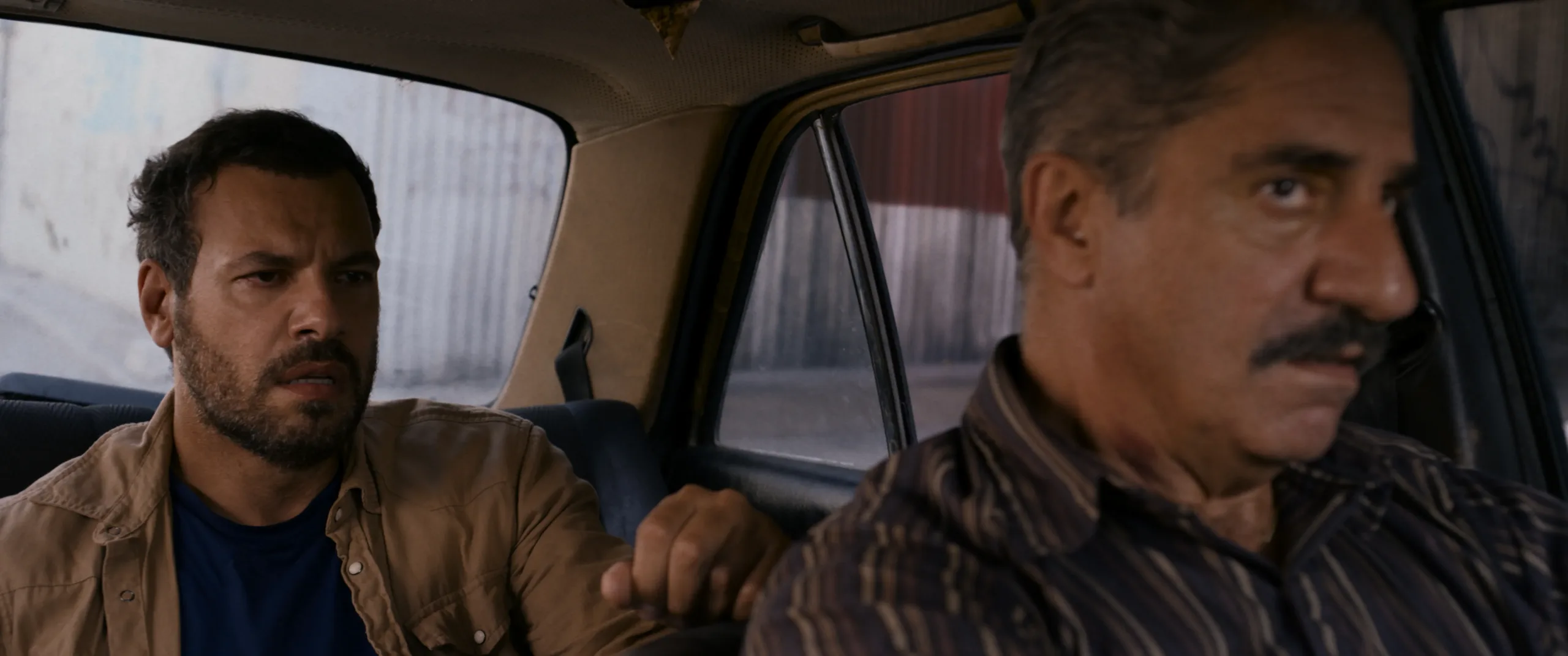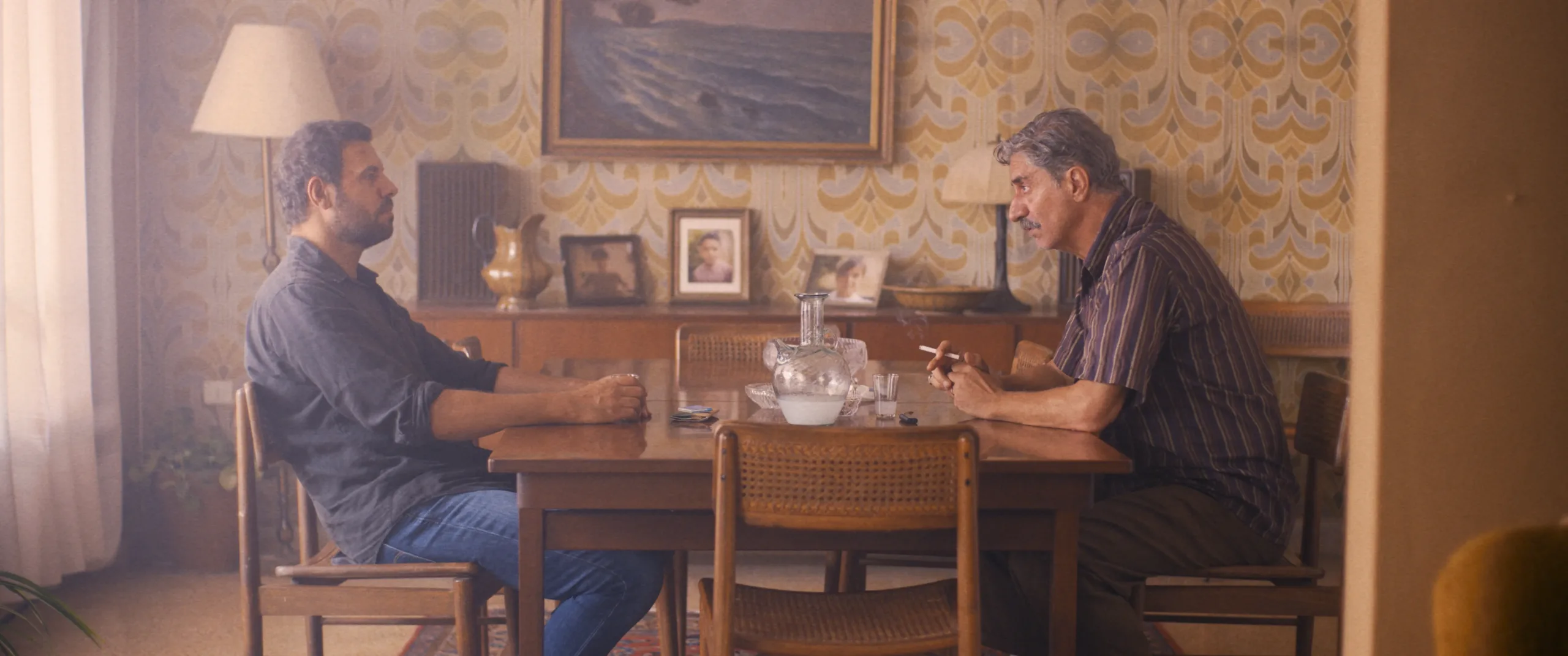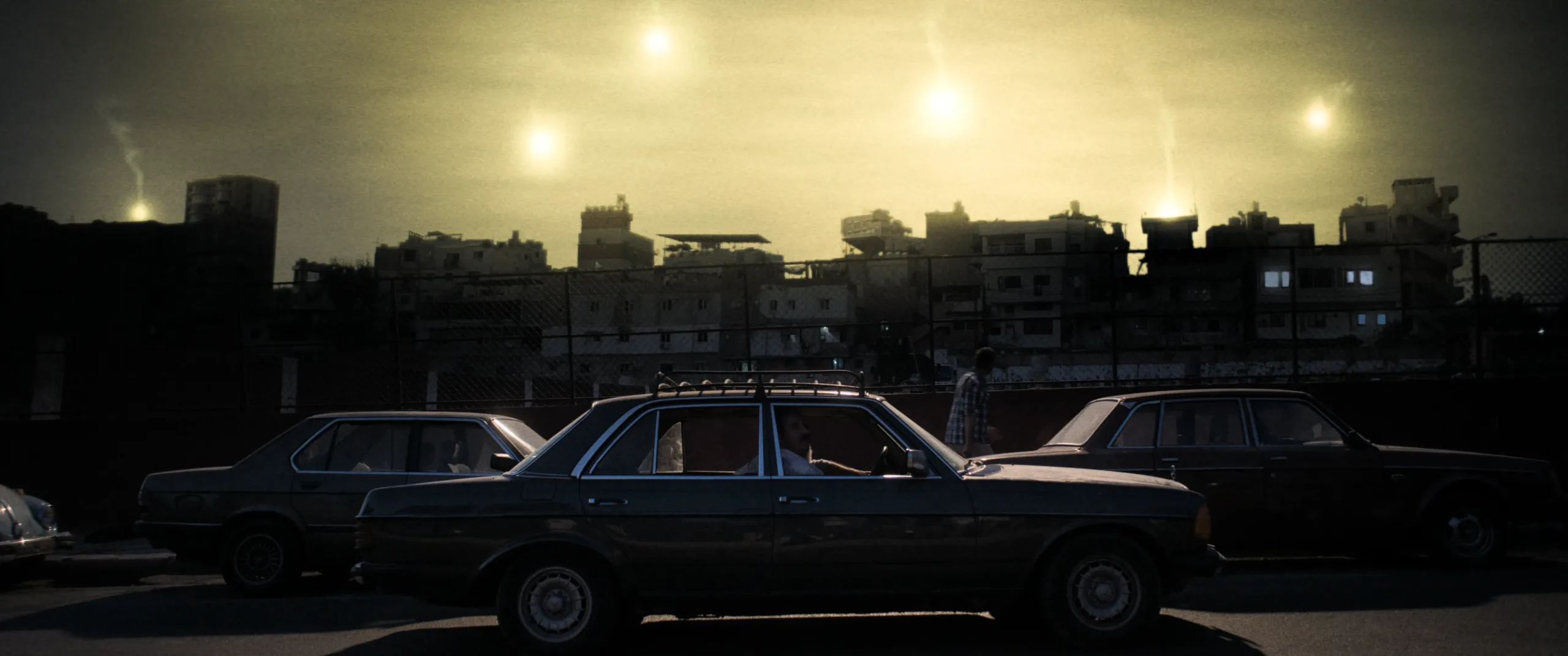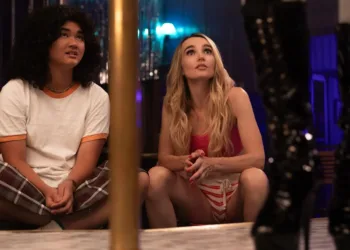Set in a city marred by conflict during the early 1980s, this film offers a scenario in which a French actor unexpectedly steps into the role of a director, determined to stage Antigone amid a beleaguered Beirut.
The city—scarred by incessant clashes and political unrest—becomes both a physical and symbolic stage, where the ancient narrative is reimagined against a modern backdrop of strife. One might wonder if our protagonist sought an escape from mundane existence or simply fancied a dash of melodrama in a setting where chaos is the norm (picture a theatrical dare in the midst of an unruly brawl with history).
Director David Oelhoffen, with a well-documented history of reworking literary texts into visual experiences, applies a calculated eccentricity to the project. His method of interweaving live performance traditions with filmic construction invites viewers to question art’s capacity to capture the tempest of human conflict or merely serve as a transient diversion from the stark realities confronting the characters.
Sorj Chalandon’s novel, which underpins the narrative, contributes a substantial literary flavor to the work. This examination of art versus adversity remains delightfully ambiguous.
The Staccato of Recollections and Realities
The film’s narrative operates like a rhythmic mosaic, oscillating between the stark immediacy of Beirut’s peril and reflective flashbacks that transport us to quieter, yet no less charged, moments backstage. Gunfire and chaos abruptly give way to meticulous rehearsal scenes—a cinematic time-lapse of terror and art (a neologism, if you will, that captures the film’s split personality).
The sequence of events is anything but straightforward, with brief, disorienting cuts from street skirmishes to long, measured moments of script reading. These temporal shifts inject tension, as each flashback, a sort of “memory theatre,” intensifies the contrast between recalled serenity and present danger.
Georges, the French actor at the heart of the narrative, transforms from a detached observer into an unwilling participant amid the swirling maelstrom. His evolution, marked by a growing engagement with the violence encircling him, carries a symbolic weight that questions art’s capacity to mirror—and perhaps even mitigate—the harshness of reality.
The film stages Antigone as a living metaphor, where rehearsals serve as ritualistic acts that temporarily suspend the savagery outside the makeshift stage. Key moments include Georges’ recruitment of a cast representing a spectrum of communities (each contributing a distinct note to the dissonant symphony of civil discord) and his reluctant negotiations with individuals whose differences seem irreconcilable.
Short, abrupt sequences of conflict interlace with elongated scenes of theatrical preparation, creating a rhythm that is both unpredictable and meticulously arranged.
This narrative construction, while occasionally meandering, offers an unexpected kind of satisfaction—a cinematic bricolage that rewards those attentive enough to catch its subtle shifts. Each scene, each flashback, poses an unspoken query about art’s role amidst unyielding strife, leaving viewers oscillating between admiration and bemusement.
Unmasking Tragedy: Art, Fate, and the Shattered Fourth Wall
The story immediately presents a connection to classical tragedy. Characters appear trapped on a path that feels both predetermined and precisely orchestrated by unseen powers (imagine destiny’s sardonic comment).
Their lives, characterized by personal loss and persistent struggle, echo the ancient themes of Antigone—each movement a testament that destiny remains unpredictable and inescapable. An almost theatrical inevitability permeates their suffering, as if an invisible narrator chronicles human struggle.
The film experiments with the concept of theatrical boundaries. Traditionally an invisible separation between performance and audience, these boundaries disintegrate through strategic deconstruction. Several scenes reveal an unfiltered intersection of performance and reality (envision a curtain suddenly pulled aside mid-performance).
This dissolution blends performer and spectator roles, challenging viewers to discern whether the unfolding events represent structured art or chaotic representations of an uncontrollable reality. The metaphor critiques societal impulses to categorize experience—a message delivered with subtle irony that might challenge traditional perspectives.
Art and conflict intertwine throughout the film. The embedded play becomes both sanctuary from and confrontation with surrounding chaos. It provides temporary refuge from persistent violence while simultaneously reflecting the raw truths erupting in external landscapes. This dual function suggests creative expression can both cushion catastrophic impacts and compel direct engagement with challenging realities (a contradiction both frustrating and illuminating).
The Auteur’s Alchemy: Visuals, Sound, and Storycraft
David Oelhoffen’s method of transforming a literary narrative into a vivid cinematic experience is remarkable. He treats the original text like a blueprint for a live performance, carefully blending theatrical form with the stark realism of urban conflict.
His direction resembles that of a stage artist who suddenly finds himself amid the urban chaos of a conflict zone, where every gesture carries a weight akin to a historical burden (imagine a conductor who swaps his baton for a sniper’s scope—a twist both wry and unsettling).
Guillaume Deffontaines’ work behind the lens is a study in uncompromising authenticity. Each shot captures Beirut with a raw, unvarnished quality that strips away any hint of romanticism. The camera lingers on the scars of the city, recording crumbled walls and faded murals that whisper tales of past strife. Using actual locations, the film injects a tangible intensity into its portrayal of conflict—a quality that transforms the setting into an unspoken character, silently echoing the chaos of its surroundings.
The soundscape introduces an auditory counterpoint to the visual rigor. Ambient clamor—distant explosions, murmurs of unrest, and the low hum of tension—intertwines with a deliberately sparse musical score. The score punctuates scenes with brief, muted notes that serve as sonic markers amid the cacophony, reminding us that quiet moments can hold as much weight as clashing chords (consider these as punctuations in a dialogue written by silence and shrapnel).
Brief eruptions of noise alternate with near silence, each shift intensifying the film’s atmospheric charge. The overall effect is an experience that oscillates between harsh realism and the subdued elegance of a well-rehearsed play, a balance that occasionally surprises with its own contradictions.
Faces in the Fire: Character Arcs and Ensemble Dynamics
Georges stands as the nucleus of the narrative. Initially distant and self-contained, he gradually finds himself entangled in the tumult surrounding him. At first, his detached demeanor suggests a man content in his isolation, but as conflict mounts, his inner transformation becomes unmistakable.
He battles both external hostilities and his own reservations, a struggle marked by a gradual immersion into political and personal strife. His evolution reflects a delicate interplay between historical burden and individual vulnerability (a transformation reminiscent of a reluctant soldier pressed into duty by circumstances beyond his control).
Supporting this complex figure is Marwan, a steadfast guide whose quiet resilience offers a counterweight to Georges’ inner disquiet. Marwan’s practical wisdom operates as a silent beacon amid the chaos. Then there is Imane, whose fiery presence injects the narrative with an infectious spark. Emerging as an emblem of defiant optimism, she challenges oppressive forces with a fierce commitment to life (a flash of rebellion amid a muted backdrop).
Casting choices further enrich the story. The film assembles actors from a mix of ethnic and religious backgrounds—a selection that mirrors the multifaceted nature of the conflict. Their interactions reflect the divided society, capturing shared humanity alongside stark separations wrought by enduring strife. Performances here evoke memories of historical moments when diverse voices converged and collided in unexpected ways.
One cannot ignore the layers of symbolism embedded in Georges’ journey. His hesitations and subsequent decisions carry weight as a microcosm of a collective experience. There is a subtle, dry humor in his reluctant acceptance of fate—an irony that might remind one of individuals compelled into roles they never sought. The ensemble’s dynamic offers a vivid portrayal of cultural and political fissures, each interaction echoing the dissonance and rare harmonies of a society in upheaval.
Crossroads of Conflict and Creativity
Set against a landscape of intense political tension, the film sketches a stark depiction of Lebanon’s internal conflicts. It creates a complex tapestry of communities—Palestinians, Christians, Druze, Shiites—each carrying deep-rooted histories and personal wounds.
The story reveals the raw experiences of sectarian tensions, depicting the struggle of daily survival amid deteriorating urban environments (an ironic elegance emerges from how hardship can generate unexpected moments of human connection).
Historical conflicts resonate as persistent whispers in this portrayal, reminding audiences of experiences that echo across global landscapes. The representation of struggle feels like a reflective surface held against contemporary disputes, where old tensions reignite in new forms. The charged atmosphere of Beirut might parallel other regions of human conflict, suggesting a recurring pattern of human interaction.
Art within the film transcends mere escape. It becomes a courageous attempt to reconnect fractured human spirits. The staging of an ancient tragedy emerges as a daring experiment—a performance that stands against the surrounding chaos.
This theatrical moment, rich with symbolic weight, challenges viewers to explore whether creative expression can connect deeply divided cultural landscapes. Actors from different backgrounds sharing a common space creates an image both powerful and unsettling, suggesting that hope often emerges from moments of greatest darkness.
Imprints and Impacts: The Art of Conflict
The film recounts the turbulent journey of Georges, a French actor who steps from isolation into the volatile reality of a fractured Beirut. His story unfolds against a stage where ancient tragedy meets the unpredictable pulse of modern strife.
The narrative pairs structured performance with the raw clamor of conflict, following a man whose every step is marked by unexpected violence and reflective pauses (as if life were a script still being scribbled on the fly). Classical motifs intermingle with sudden, almost brutal disruptions, each scene offering a slice of a history marred by endless turmoil.
This work leaves a mark on cultural discourse, its artistic ambition sparking conversations that challenge conventional views on art and conflict. The portrayal of a divided city—with voices from Palestinian, Christian, Druze, and Shiite communities—mirrors episodes from eras past, echoing familiar strains of human discord.
The staging of a timeless play in such a setting hints at art’s dual capacity: to expose harsh realities and provide a fleeting escape. There is a wry humor in the notion that a theatrical performance might momentarily suspend the relentless chaos, offering, if only briefly, a canvas on which disparate lives can share meaning and ignite dialogue.
The Review
The Fourth Wall
A film that marries theatrical heritage with war's grim reality, provoking debate and challenging perceptions of conflict and art. Its bold imagery and intricate symbolism form a provocative commentary on human resilience amid strife. Although its pacing might unsettle some viewers, the film's intelligent narrative and earnest performances secure its status as a thought-provoking cinematic work.
PROS
- Thought-provoking narrative
- Strong performances from the cast
- Impressive cinematography that captures the chaos of conflict
CONS
- Uneven pacing in certain sections
- Some dialogue may come off as overly cerebral










































